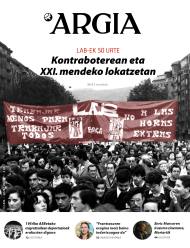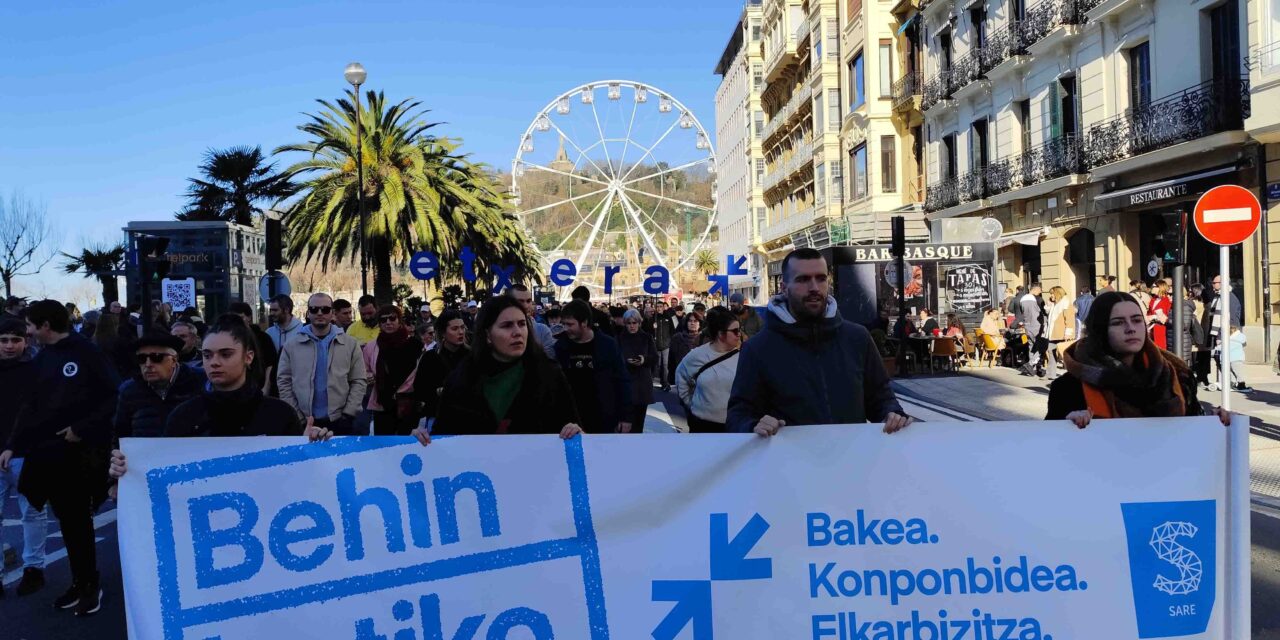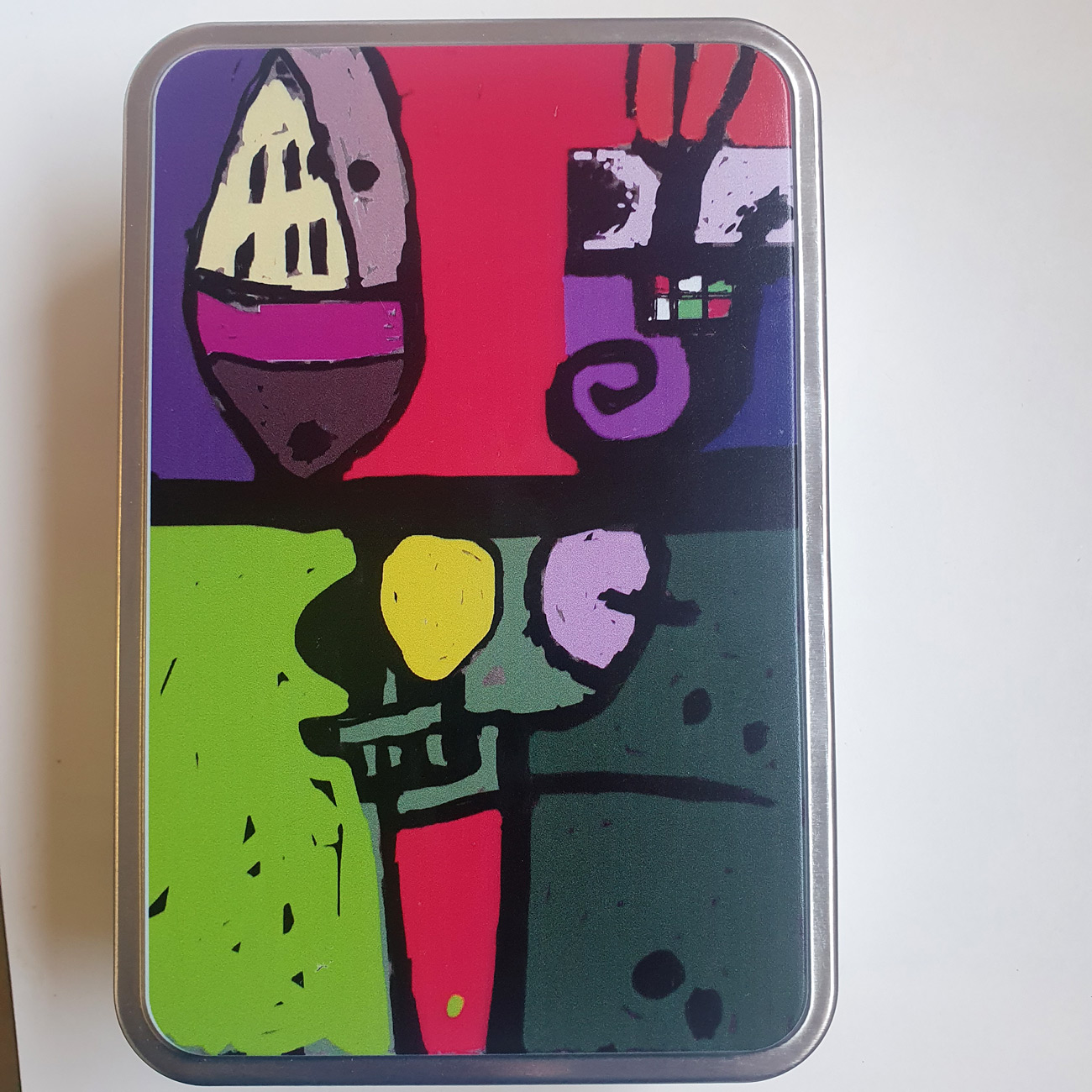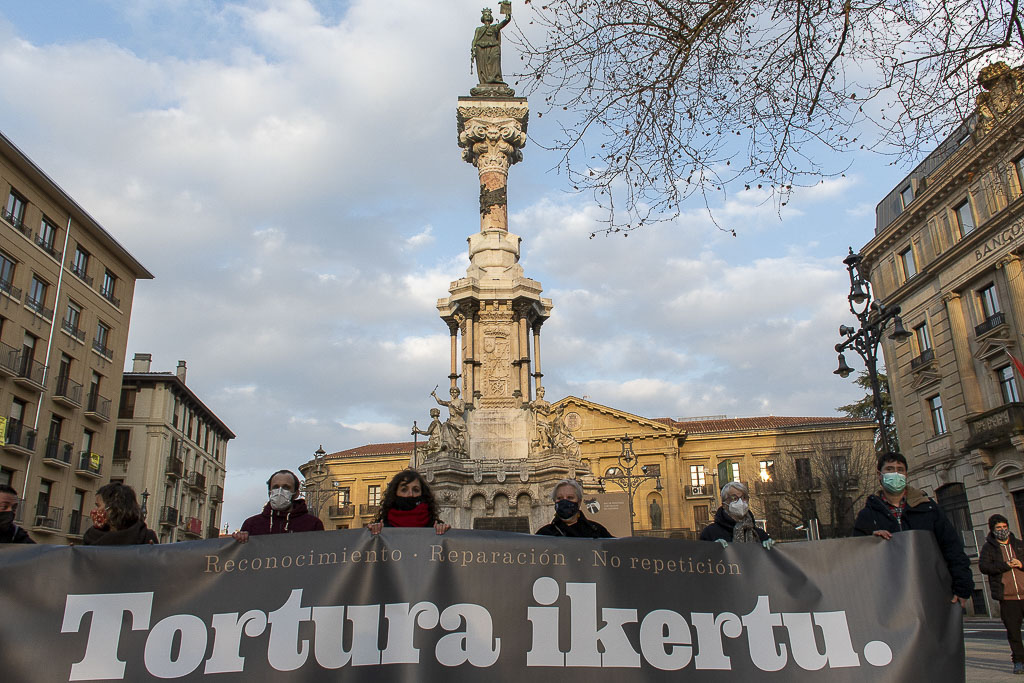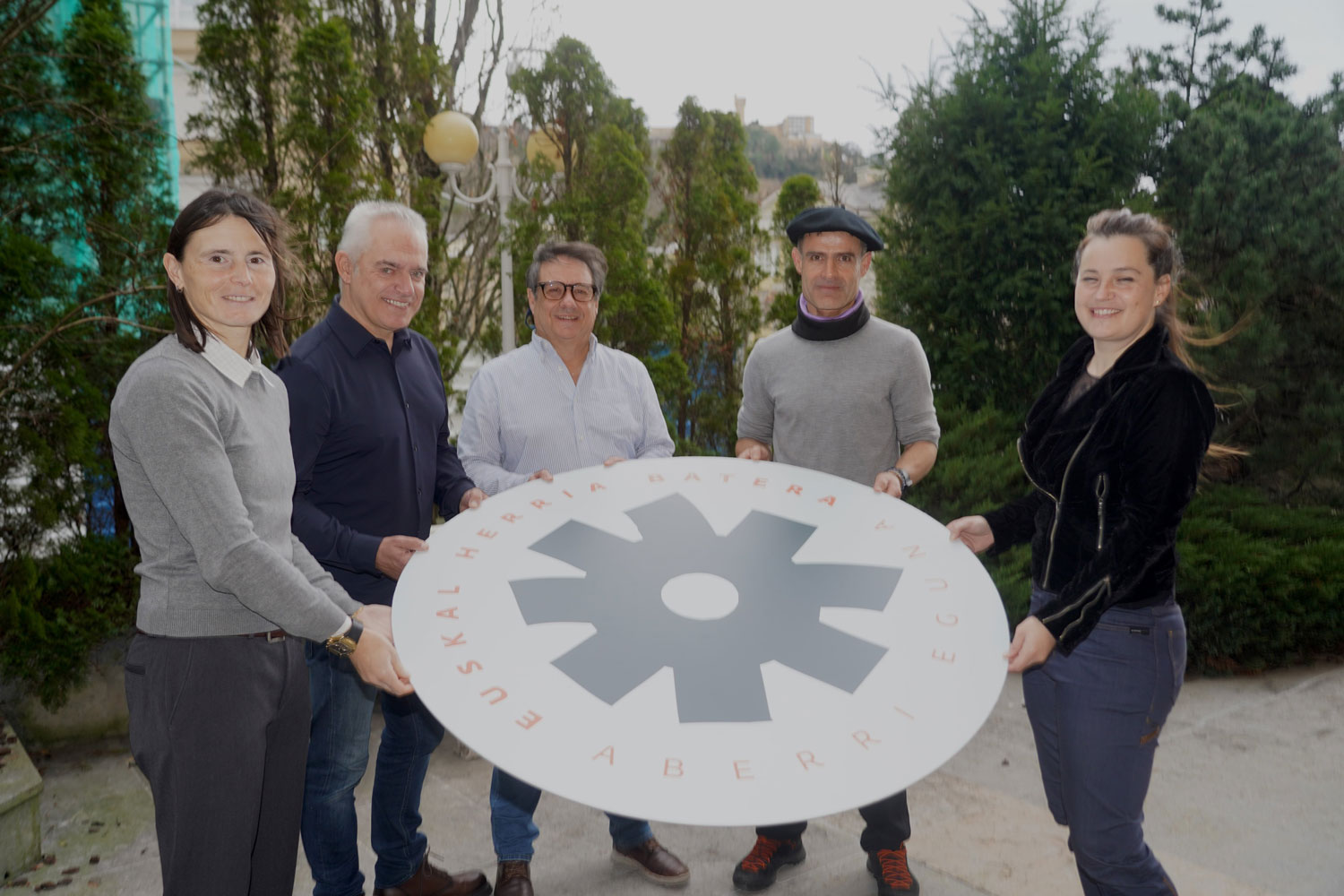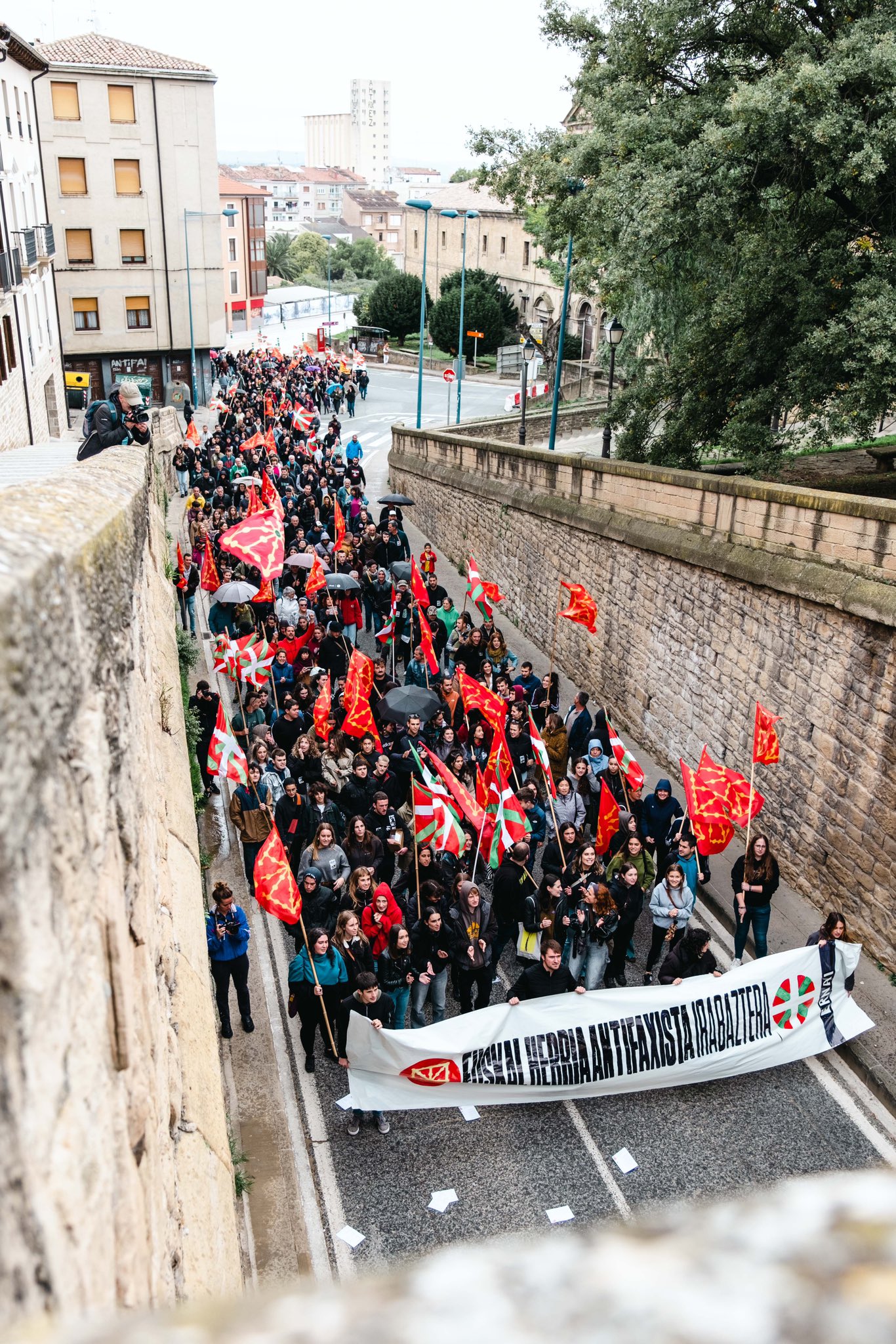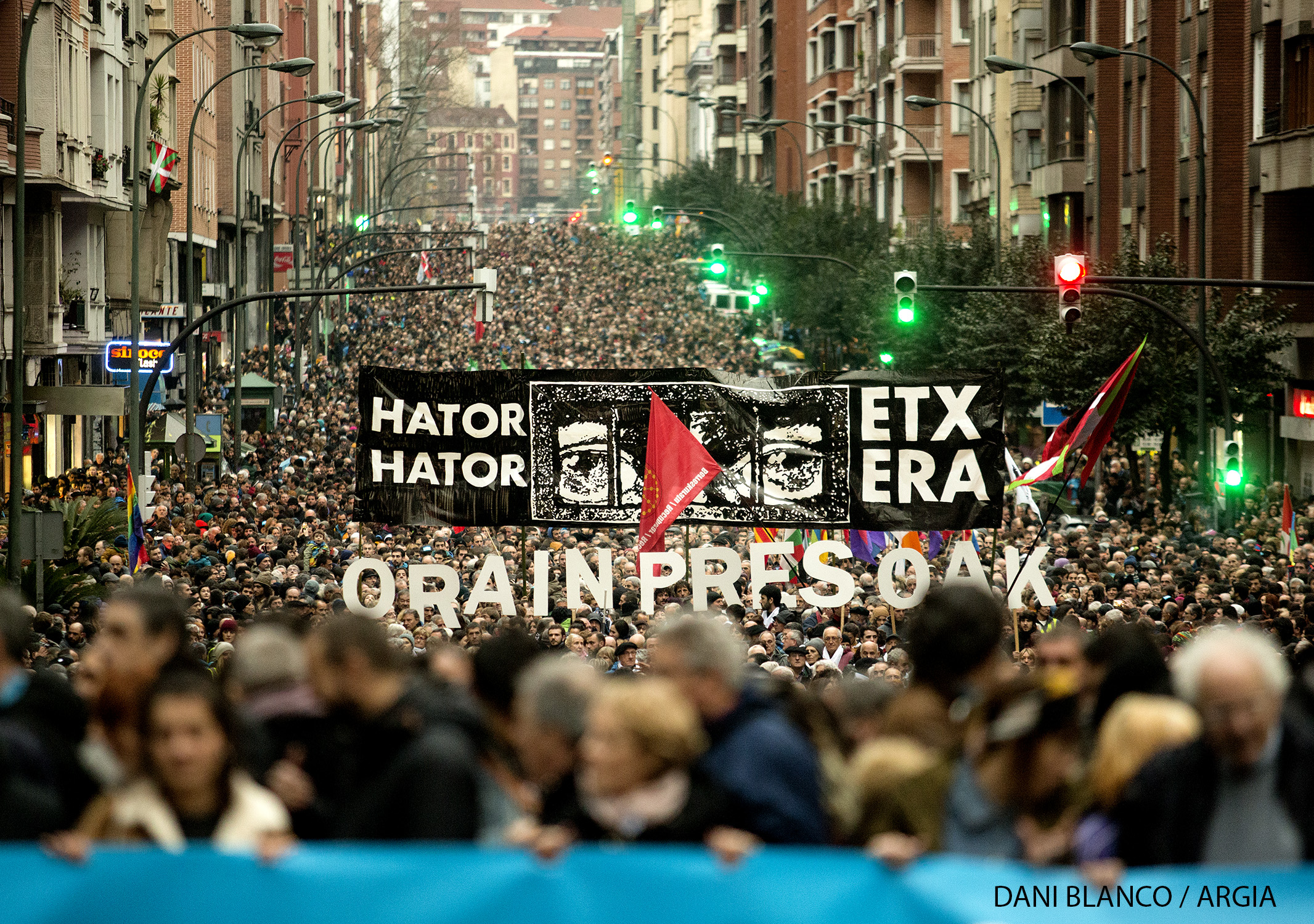"I am struck by the silence and lack of resources in research into the Basque conflict"
- In March Olatz Harmful obeitia presented the work he has developed in the last eight years, a feminist analysis of militancy and political repression: Thesis: The case of the women of the Abertzale Left in the 1990s. With the excuse of this, we have met him in Lekeitio to delve into it. He says that “funambulists” are the people who are working on these kinds of issues at the Academy from a different point of view.

Almost ten years ago, I first listened to you reflecting on these kinds of issues, specifically in 2015, in the course Reading the HD conflict to the feminist peace of the future. Was he already investigating?
I knew I wanted to make a thesis about it. I wasn't clear what I was looking for, I had one more wound, one discomfort, one worry. I knew that my experience was not just mine, but a lot of people, I had finished my sociology career, I was in full militant activity in Zumalabe [Joxemi Zumalabe Foundation], and then it was the context of the end of the armed struggle, with all that that means. There was an environment in which we could talk about issues that had not been addressed until then.
I experienced that course as a milestone.
I remember this course as a collective lunch, I felt very happy and at the same time very uncomfortable at some moments, I felt that some feminist looks didn't understand the motivation of some women that we have or are part of the left abertzale, neither what has given us in life, nor how we value things. So, on the one hand, I felt out of the story that the Abertzale left makes of itself and…
Was that the wound?
That was a wound, another wound was the repression of the Spanish State, an absolutely machist stab in some violent parameters; and then another wound that is not comparable but rather a significant discomfort, I realized that from feminism you can also look different, where is our gaze?
"I saw myself in the midst of a series of gaps, and the thesis is that, an attempt to center those gaps."
What exactly has it studied?Around the 1990s I have made
a feminist analysis of the experiences of women who began to participate in different organizations of the left Abertzale or in several of them and in ETA, an armed group. I have followed the trajectory of his biography: the process of politicisation, which begins in childhood, political commitment, his socio-political participation, armed in some cases, and the things they have experienced as a result, in many cases, detention, torture or torture, prison, post-trial and current gaze.
.jpg)
Have you made interviews for it?
I did sixteen interviews, but two withdrew throughout the research, which is very significant, because you see the conditions that exist to talk about the subject in general and the conditions that each one has. In addition to the interviews, I have also received public statements, conferences, etc. of these women.
How have you experienced conversations?
I knew most of the interviewees. It often happens in this community of women that we've talked a lot about some issues, but it's the same in the prison yard, not in formal spaces. When we first went out to the street in late 2016 with the manifesto Hemen Gaude, it was a milestone: until then in the informal spaces and, therefore, we brought to formality and public space what we had talked about as something personal or secondary. In the thesis, something similar. We have offered ourselves time to talk about it, but with a recording in the center, that is, to analyze, not to empty the bowels. Then there's been a lot of laughter, there's been crying, there's been a lot of anxiety -- but it's been nice. Beautiful dialogues between political sisters.
Once the material has been collected, it has been analyzed, what conclusions has it drawn? What would I highlight?
A lot of things. But one thing is, for example, the lack of visibility: sometimes it gives the impression that we have not been, or when we have been or when we are given the light, we are given only in certain parameters.
In what parameter?
For example, as far as repression is concerned, we have also taken visibility into the subject of torture, but we are not there when it comes to analysing the contribution of militancy or making history of political prisoners. Another thing is that many times women also talk about different things, we've had other crossroads, and there's a really interesting content to look at conflict from somewhere else and to be able to work it from a feminist perspective. I've tried to do that, but we've done no more than start the road, and I speak collectively because I'm not the only one who does that from that point of view. I would say that my contribution is that these women have been or have been among the different gender regimes. In the conflict, after all, there was the place occupied by women in Basque society, the place occupied by women on the left Abertzale, and how they placed women in the strategic repressive devices, especially in the Spanish state. Then, we militant women have made the way in the response to the different regimes, in the exercise of those options, and I believe that sometimes it has not been taken into account.
"In other countries, post-conflict processes have been the subject of numerous, varied and subsidised research projects. In our no.”
How do you feel that it is judged very partially?For me
there is sometimes no difference between the Abertzale left (or the movement that has carried out the political-military strategy) of the political-armed conflict, and there are more actors in the conflict. In a conflict, there are interactions that produce different results. With the regimes, the sociopolitical and armed participation in the conflict has not only been given according to the conditions of the Abertzale left, but also the repressive strategy has laid the playing field and the conditions of our society. Therefore, not taking them into account can be a partial and interested look. And I think it's important to look at those interactions.
Another issue he has analyzed is how the gender conflict affected what has been called the Basque conflict and vice versa. What have you seen?
I would say that the national struggle has facilitated and boosted the political commitment of women and the organisation of women. The Basque conflict has politicised countless women and their commitment has led them to have greater social legitimacy in the future. Politicization, political commitment and social legitimacy or authority are not, even today, the place and practice that the gender system gives women.
Regarding repression, I would highlight the presence of the gender ideology of Franco in the repressive devices of the Spanish State, both in torture and in penitentiary policy. In the political project called Spain, I have seen the current situation of Franco, and that gender dimension is not taken into account today.
On the other hand, I have tried to avoid victimization, I believe that idealization and victimization are often a consequence of political polarization. That's what conflict brings for itself and violence brings for itself, but I think we have to overcome it. I say this without idealization, but from a feminist point of view it seems to me that it is tremendous that in this country there are itineraries of women, that are not known, that are not recognized and that are not taken into account. It would be a pity if it happened as in the war of 36, right? It seems to me that we are not – we are not in its measure. The effort that has been made to open the way, to tell it, and its collective collection… are totally unbalanced.
Once the thesis is finished, do you intend to disseminate it?
I'm not going to make a book, but I want to spread the content. My goal was to reflect, a critical reflection, so that the Basque left, the popular movements, the feminist movement, and of course, the people who are in the world of research can know it. But I'm not going to do it in a single format. I want to gradually develop the parts of the thesis, in different formats, with several members, and always collectively. I don't want to make that path alone.
Apart from that, for me there is a place where a real diffusion is made: most of the conferences that call me, if I can, I'll go. Always in Basque, linked to our community here. For me, the most important thing is to be here and in the critical political square, let's say.
.jpg)
We're in 2024. What path has the feminist analysis of the conflict taken?
I have a bittersweet feeling. It is not what should be brought forward, but it is true that thanks to the effort, courage and time of a people and some collectives a road has been made. In the thesis I have included a few milestones: Two courses from the UEU, the Hemen Gaude initiative, which we did the political prisoners; Emagine made the feminist prison march; This is not our course of peace and publication; The initiatives of the feminist group of the Social Forum, I believe, feminist justice days; The book Argi eta txarrak; other studies that have been on the way...
There is work and steps have been taken; now, I would have liked the popular movements to have made another place to the issue. We have a lot to do, and I'm passionate about that; I see my militancy in that.
Besides being a militant, you have reflected on the militancy with other colleagues within the Joxemi Zumalabe Foundation.
So what happened suddenly was called the militancy crisis after 2011, and some reflections were made on how we've militated, what model we've had, etc. I wanted to discuss this issue. I call it arguing because I think it's a way of thinking together, I come from that political culture, I really wanted to keep the topic of political culture, and Zumalabe offered me the opportunity. Zumalabe gave me the opportunity to militate with left-wing militants and feminists from political families who weren't mine and rethink different areas together, and I put it as a time when I grew up politically. Then, in line with the militancy models, we made a little pendulum: when you've been at one end you go to the other end, and then, moving on, I see there's a compromise crisis. I'll leave it there. There's a huge crisis of engagement, a huge loss of the collective, and Nininism has come in full.
Do you mean something else before closing?
Have I given little reed to college? I'm worried about that. I am struck by the silence and lack of resources in research on the Basque conflict. In other countries of the world, there have been and have been many research projects in post-conflict, diverse, interdisciplinary and subsidised processes. We don't. The process of resolving the consequences of the conflict is affected by the need for research. We do not know many situations and consequences.
"Even women have given us visibility on the subject of torture, but we are not at the time of analyzing the contribution of militancy or making history of political prisoners"
As far as the practice of university and militancy is concerned, would you distinguish that research is useful for the X movement or that the same research is a militant action within the university?
We have to problematize that space between university and militancy. I think there's a huge spectrum of sites between universities and militancy, and each one of them is located in different places. On the one hand, within the university we have to fight for power, it is marginal, it is abertzale too, we know what the situation of the Euskera in the university is, the sad influence of neoliberal tendencies, so we have to fight with many powers. This is the militancy that can be done within the university, creating and syncing knowledge, fighting for working conditions, creating new research groups… there is a whole field.
Another task is research for political or popular movements. Another option is to militate outside the university, as has always been done, in a collective, and to have a profession in the university, therefore, the head in both places. There are many models, but the conditions for carrying them out are not the same, and sometimes I think we have to be stricter when we talk about that place between university and militancy. For example, college discipline you a lot, change your time habits, change your relationship habits, and it's very difficult to keep your legs on earth, have time to militate, have time to work quality out of college relationships.
Last word: Without lichen, there is no peace. In
my thesis I have used lichens as the image of the retaliated women of the left Abertzale: they are usually in the group, they are the result of symbiosis processes – algae, fungi – they are not spectacular but without the liquid there is no tree, their contribution is essential, but many others submit them to the shade. In this sense, we gave a slogan among laughs: Without lichen there is no peace, and it seems to me that the spirit of essence of the thesis is that: somehow the lichens are there and you have to observe them, they cannot be eliminated, they cannot be silenced, and without them making a path is clearly a loss.
Euskal Herriko Bilgune Feministak deituta elkarretaratzea egin dute Hernanin Iratxe Sorzabali elkartasuna adierazi eta "babes osoa" emateko. Inkomunikatuta egon zen uneak berriz ere epailearen aurrean kontatu behar izatea, "bizi izandakoak utzitako ondorioen... [+]
Frantziako Poliziak 2002an atxilotu zuen zumarragarra, eta 30 urteko zigorra betetzen ari da. Sare Herritarrak mobilizazioa deitu du datorren ostiralerako, Urretxuko Potros Plazan.
Nafarroako Gobernuak ofizialki aitortu ditu gure lurraldean giza eskubideen urraketa larriak jasan zituzten Estatuaren indarkeriaren beste zazpi biktima. Horien artean, hitzez hitz “motibazio politikoko biktima gisa” aitortzen ditu Patxi Erdozain, Eneko Compains,... [+]
Iratxeren Bidasoaldeko Lagunak ekimenak deituta, dozenaka lagun kalera atera ziren atzo Iratxe Sorzabal preso politiko irundarraren absoluzioa eskatzeko eta behingoz etxera ekartzeko, torturak salatzeaz gain.
Sare Herritarrak antolatuta, pasa den urtarrilaren 11n Bilboko kaleak bete zituen manifestazio jendetsuaren ondoren, berriz sortu da eztabaida, euskal presoei salbuespen legeriarik aplikatzen ote zaion. Gure iritzia azaltzen saiatuko gara.
Espetxe politikan aldaketa nabarmena... [+]
Just as we experienced the flourishing of the Basque Country with the help of the artists, so that this time, taking advantage of their impulses, we continue to make our way together giving the necessary support to the Basque political prisoners, exiles and deportees
The... [+]







